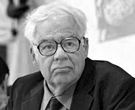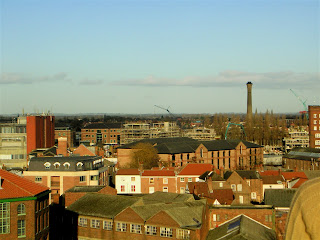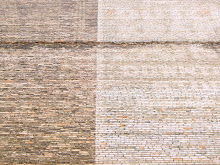
Here's a review by Stephen Duesner of a really great album I recently ran across.
Bon Iver ( Justin Vernon) is originally from Eau Claire, WI.
Review (Pitchfork Media):
The biographical details behind the creation of an album shouldn't matter when it comes to a listener's enjoyment, but For Emma, Forever Ago, Justin Vernon's debut as Bon Iver, exudes such a strong sense of loneliness and remoteness that you might infer some tragedy behind it. So, to skirt the rumor mill, here are the particulars, as much or as little as they might apply: In 2005, Vernon's former band DeYarmond Edison moved from Eau Claire, Wisconsin, to North Carolina. As the band developed and matured in its new home, the members' artistic interests diverged and eventually the group disbanded. While his bandmates formed Megafaun, Vernon-- who had worked with the Rosebuds and Ticonderoga-- returned to Wisconsin, where he sequestered himself in a remote cabin for four snowy months. During that time, he wrote and recorded most of the songs that would eventually become For Emma, Forever Ago.
As the second half of its title implies, the album is a ruminative collection of songs full of natural imagery and acoustic strums-- the sound of a man left alone with his memories and a guitar. Bon Iver will likely bear comparisons to Iron & Wine for its quiet folk and hushed intimacy, but in fact, Vernon, adopting a falsetto that is worlds away from his work with DeYarmond Edison, sounds more like TV on the Radio's Tunde Adebimpe, not just in his vocal timbre, but in the way his voice grows grainier as it gets louder.
Vernon gives a soulful performance full of intuitive swells and fades, his phrasing and pronunciation making his voice as much a purely sonic instrument as his guitar. In the discursive coda of "Creature Fear" he whittles the song down to a single repeated syllable-- "fa." Rarely does folk-- indie or otherwise-- give so much over to ambience: Quivering guitar strings, mic'ed closely, lend opener "Flume" its eerily interiorized sound, which matches his unsettling similes. "Lump Sum" begins with a choir of Vernons echoing cavernously, which, along with that rhythmically rushing guitar, initiates the listener into the song's strange space.
For Emma isn't a wholly ascetic project, though. A few songs benefit from additional recording and input after Vernon's initial sessions: Christy Smith of Raleigh's Nola adds flute and drums to "Flume", and Boston-based musicians John DeHaven and Randy Pingrey add horns to "For Emma"; surprisingly, their company doesn't break the album's spell of isolation, but rather strengthens it, as if they're only his imaginary friends. Vernon turns the cabin's limitations into assets on "The Wolves", layering his falsetto, tweaking his vocal tones to simple yet devastating effect, and piling on clattering percussion to create a calamitous finale.
That passage contrasts nicely with the simple intro to the next track, "Blindsided", which builds from a single repeating note into a halting chorus melody that sells his skewed Walden imagery: "I crouch like a crow/ Contrasting the snow/ For the agony, I'd rather know." Vernon's lyrics are puzzle pieces that combine uneasily; his nouns tend to be concrete, yet the meanings slippery. On "Flume", the lines "I am my mother's only one/ It's enough" form a strong opener, but the song grows less and less lucid: "Only love is all maroon/ Lapping lakes like leery loons/ Leaving rope burns-- reddish ruse." It's as if he's trying to inhabit the in-between spaces separating musical expression and private rumination, exposing his regrets without relinquishing them. His emotional exorcism proves even more intense for being so tentative.
Be well,
JS



















































